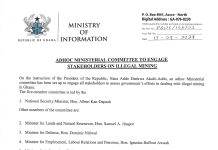President Nana Addo Dankwa Akufo-Addo has Inaugurated Ghana’s first private oil refinery and pledged to revitalize the state-owned Tema Oil Refinery (TOR). Constructed by the Sentuo Group Ghana, a Chinese conglomerate at the Tema Industrial Area, the first phase of the new refinery is anticipated to process an initial capacity of 40,000 barrels per day and then scale up to 100,000 barrels per day by the end of the year. The second phase of the facility is anticipated to be finished this year, and would raise its capacity to five million barrels per year.
Inaugurating the new facility at a spectacular ceremony, President Nana Addo, said that his government is committed to revamping the Tema Oil Refinery and would also stop at nothing to ensure that such vital state asset was operational.
“The challenges of another domestic oil refinery, the Tema Oil Refinery, are well documented. Nonetheless, I want to assure the Ghanaian people that the Government remains committed to the full operationalization of TOR, and we will stop at nothing to bring it back on stream so that together with Sentuo more and more of our oil will be refined right here in our country, Ghana,” he emphasized.
President Akuffo Addo said, the establishment of the new refinery was a significant milestone towards the country’s energy independence and economic prosperity.
“This project represents not just a brick and mortar, but also a symbol of our determination to shape our destiny, strengthen our economy reduce our dependence on foreign oil and inspire investment in our economy”
He was optimistic that Ghana would also soon wean itself off the reliance on foreign fuel for energy needs, and the entire operations of the refinery would also serve as a pivotal step towards the country’s energy future.
“No longer will we be relying on an external source for fuel, instead, we will harvest our natural resources to fuel our progress.”
President Akuffo Addo said, the refinery would not only provide the country with petroleum product, but also create jobs and empower local communities, drive investment in related industries and contribute to the overall realization of Ghana’s broader industrialization agenda.
“Processing our crude oil domestically, we are creating opportunities to add value, transform raw material into finished products and increase the competitiveness of our manufacturing sector,” he stated.
He said the refinery stood as a good example of “our Ghana made initiative, where we prioritise local production for the benefit of Ghanaians.” He emphasized that the refinery would not only supply goods but would also aid in the development of the nation’s, among many other areas. The president indicated that, the good cooperation between the public and the private sectors in the country and investment in the sector would pave way for a robust industrial revolution that will support various sectors, including pharmaceutical, agriculture, manufacturing, and construction industries.
President Akufo Addo was not happy that 95 percent of Ghana’s current consumption of petroleum products was imported, resulting in heavy reliance on external sources.
“This over reliance did not only pose challengers such as high cost, and the constant drain on our foreign currency reserve, but also limit our ability to control prices and ensure stable supply. The establishment of this refinery signifies our commitment to reducing this dependence, achieving self-sufficiency and driving the growth of our domestic petroleum industry,” he noted.
The executive chairman of the Sentuo Group Xu Ning Quan on his path said that, the development reflected the long-standing ties between Ghana and China, and what countries could accomplish when the private sector was encouraged. He also expressed his outstanding gratitude to the government of Ghana for creating and building such an excellent and conducive atmosphere for the private sector to thrive, adding that the project would complement Ghana’s quest for energy sustainability and efficiency.
Source: MOI (PR Unit)
























